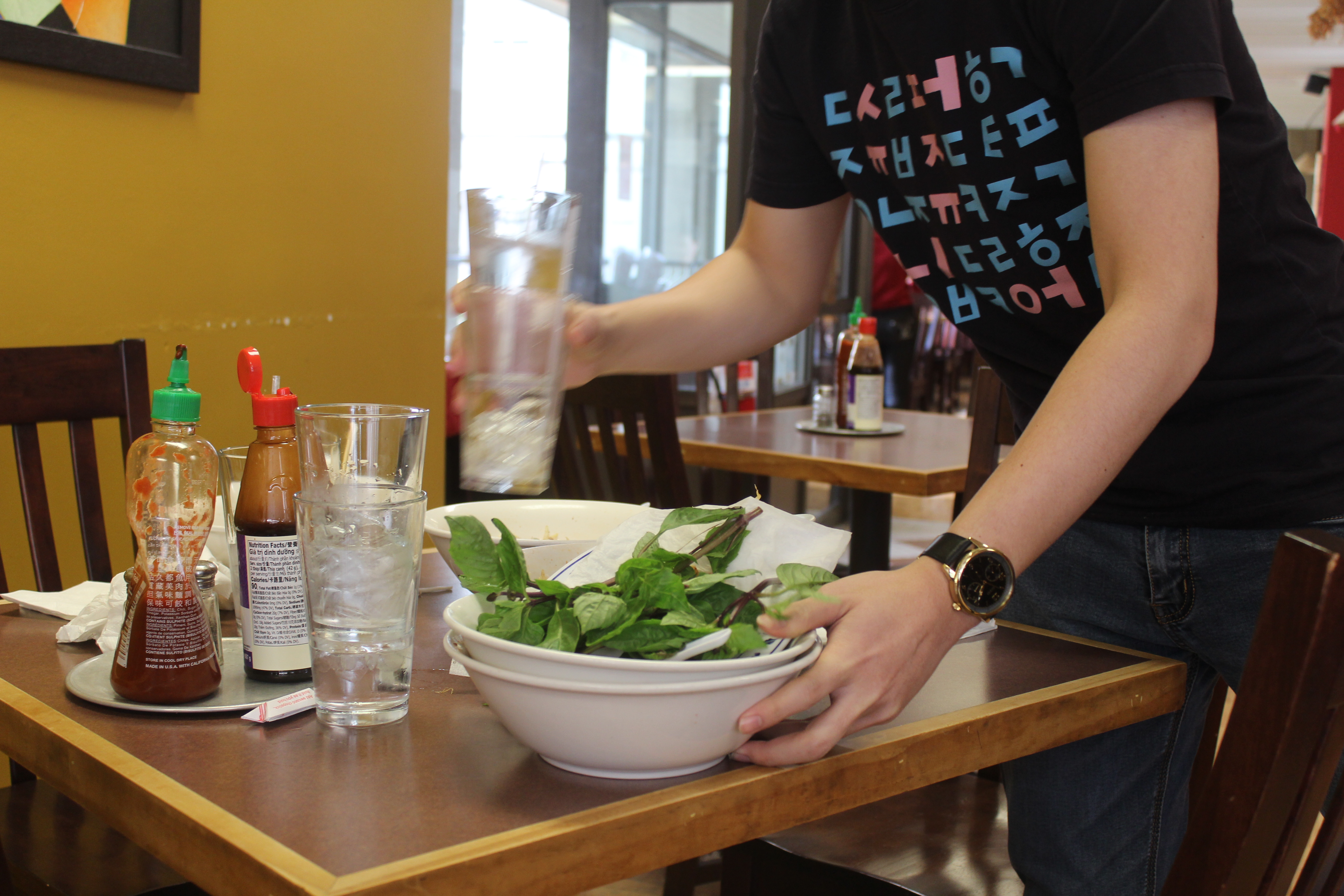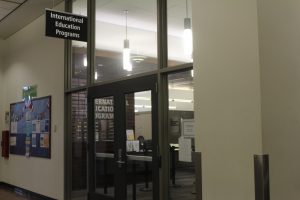
International Students Risk Visa Status for Illegal Work
Written by Nhu Mai, 03/16/2018
According to U.S. immigration law, international students are only allowed to work on-campus for a maximum of 20 hours per week. Other than that, international students are not allowed to work off-campus without permission. However, US universities also have a special policy; if international students want to go to work, they must be legally employed on campus, and they will be issued a Social Security number. International students can work in shops that are open on campus, selling school supplies, clothing with school logos, or working as a tutor. However, the cost of living in the United States is not cheap, leading to a lot of students defying the law to get paid “under the table.”
Despite many warnings from the U.S. Embassy, working off-campus is attractive to international students because they can earn cash, and they do not have to pay taxes. They find jobs as manicurists, receptionists, dishwashers, cleaners, and babysitters.
Hoang, an international student from Viet Nam, has recently bought a new car.” I got all of the money from doing nails,” Hoang said. Thanks to his talent for doing nails, he has made a lot of money. However, to earn $2,000 a month, he has had to work 12 hours a day. Hoang confessed: “Last quarter, I registered for four classes, I failed two of them.”
Hoang is still lucky to receive proper remuneration. Since it is illegal to work off-campus, most of the students are paid lower than the state minimum wage. The City of Seattle specifies a minimum wage of $15 per hour, but if students choose to get paid under the table, they are more likely to work twice as hard while earning less than that. When they go home, they are so tired that they are not able to concentrate on learning, which leads to a drop in their academic performance. They may drop too many classes, which can lead to their termination from school. “I have to work six days per week, continuously from 11 am to 10 pm, only resting for 15 minutes for lunch,” Danny, a student from Seattle Central College, said. “While Seattle stipulates a minimum wage of $15 per hour, I am only getting paid $7 per hour, not including the tip of the clients.”
Working off-campus illegally might not be worth the risk, since you could be deported if you get caught. As a student, you may not work outside campus without USCIS permission. Ms. Lan, a nail salon owner in Chinatown, said, “Getting students to work is hard for us, partly because of their situation, they want to live independently without the help of their parents. But besides that, the owners like me are also in trouble if the police check or find them hiding illegal workers. ”
Anthony, the owner of a Pho Restaurant, told me about some of his experiences in employing international students. He said, “We have three working students … but there have been cases where students are discovered.” He went on to tell me about a specific girl who got caught. “Fortunately, she explained her family situation including some financial difficulties and her desire to go to school. They agreed not to return her home. That is the only lucky case I saw. ”
Kathy, who lives in Seattle, and works illegally in a nail salon, said, “I also have to go to work to help my family, partly because I want to practice living independently. There are days when people from the Medical department come and conduct examinations. We have sneak out of the back door and drive away.”
Alex, a student, said, “I work for my cousin’s restaurant, so I do not fear much, but many of the students in the United States work, not only Vietnamese but also Korean, Chinese and Indians.”
One other major problem is how students are treated depends on their employers. They may or may not pay the students for the hours that they have worked. It is common to hear complaints from the students that they are not getting paid and they cannot do anything about it. “It happens all the time,” said Jack, an international student who also works at a deli in Othello. “Once, my boss only paid me for 10 hours instead of 22 hours I worked. I cannot do anything about it. I have friends who are still trying to fight with their employers for their salary. When employers don’t pay, we can’t do anything since we are both committing illegal acts.”
Anthony said, “Pho is $7-8 per hour, and tips are divided up every day. Getting paid $15 per hour is nearly impossible. If discovered, the shop owner may be shut down and not allowed to operate. Students aren’t allowed to work either, and that is why there are many places where people rely on this to exploit their labor. It is hard to avoid this problem.”
“We don’t even get tips. The owners take all or only give us 30% of it.” Jack complains.
An international student that currently has a job on campus earns about $500 a month. If he or she is lucky enough to work during quarter break, the money could go up to around $1000. However, international students have to pay more than $4000 each quarter, and that is just for the tuition. According to Kathy, the education in American is much better than the available in her home country. That is why even though she knows that it is illegal, she doesn’t see any other way of paying for the high cost of international tuition. “If I don’t do it,” she said, “I couldn’t afford to be here. Everyone else does it, so why not? You just have to be careful of ICE.”

International Education Office is one of the few departments that offer jobs for international students.
Yet another Seattle Central student explains why many international students still choose to work illegally. “Besides money, it is a lot easier to get jobs outside of school than the ones on campus. They are extremely competitive, and you have to go through interviews and such. You can just visit the food stores and ask if they wanted to hire help. It’s much easier!”
Many students point out that there are countries that are also popular with international students that allow students to work off-campus, as long as they can make sure they can balance school and work. International students in Canada are allowed to work up to 20 hours per week while their programs are in session and full-time during scheduled breaks in the academic calendar. New Zealand also allows people with student visas to work if they meet certain requirements.
“I think America should allow international students to work off-campus as other countries do. That would be a great idea,” one student agrees, “Many of us are struggling. Only the lucky few are able to find jobs on campus. What about the rest of us then?”
Note: the names in this article have been changed to protect the sources’ identities.


